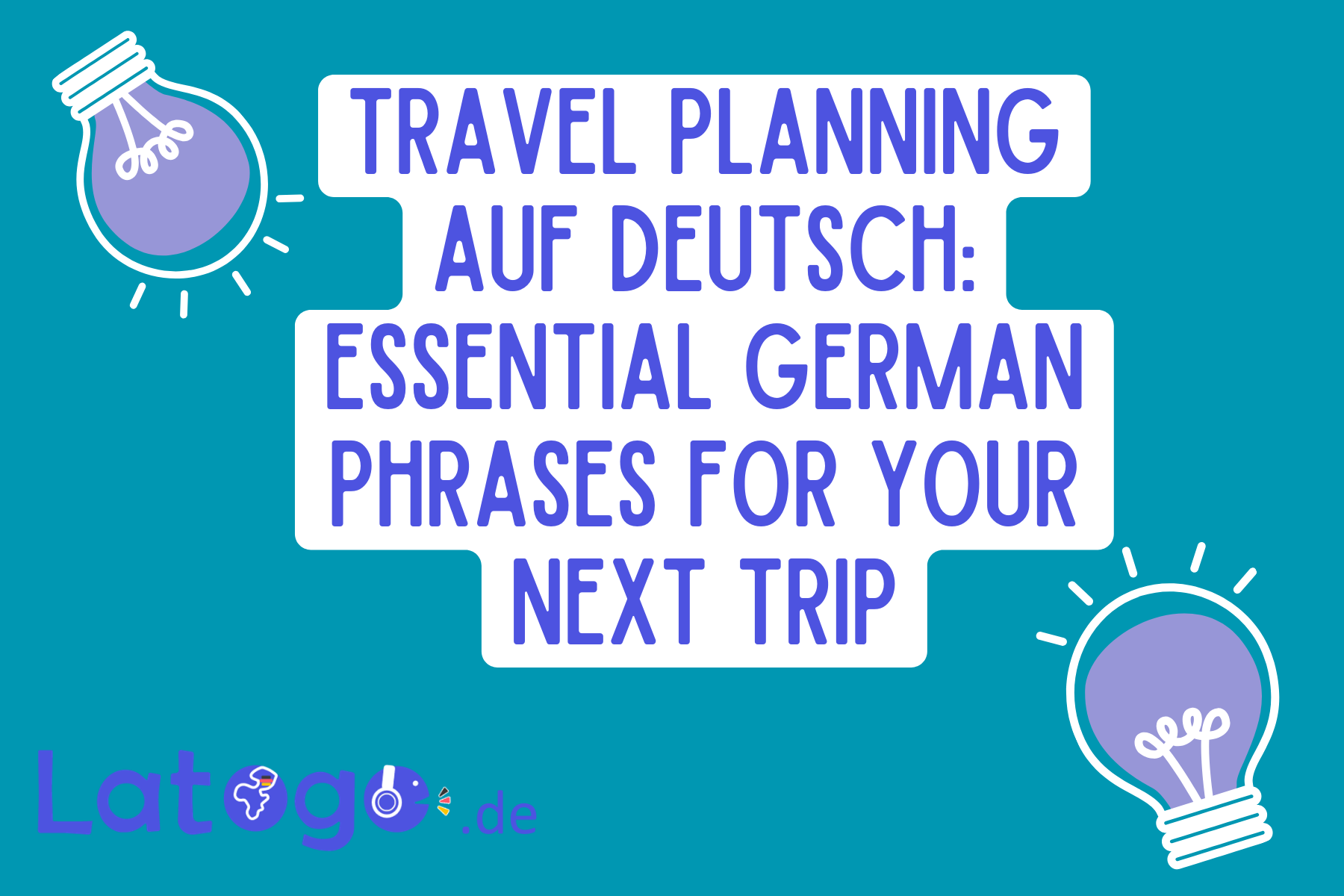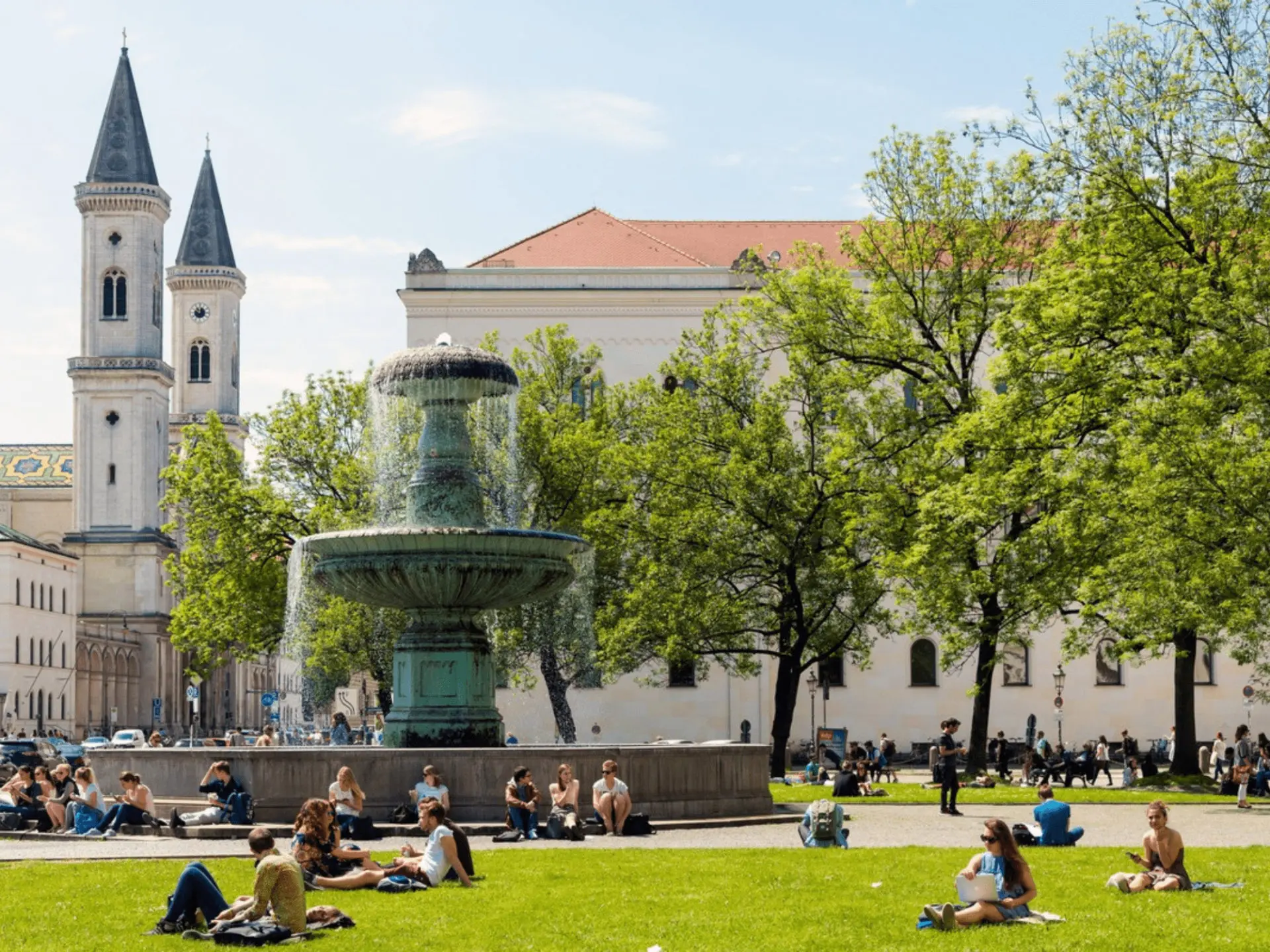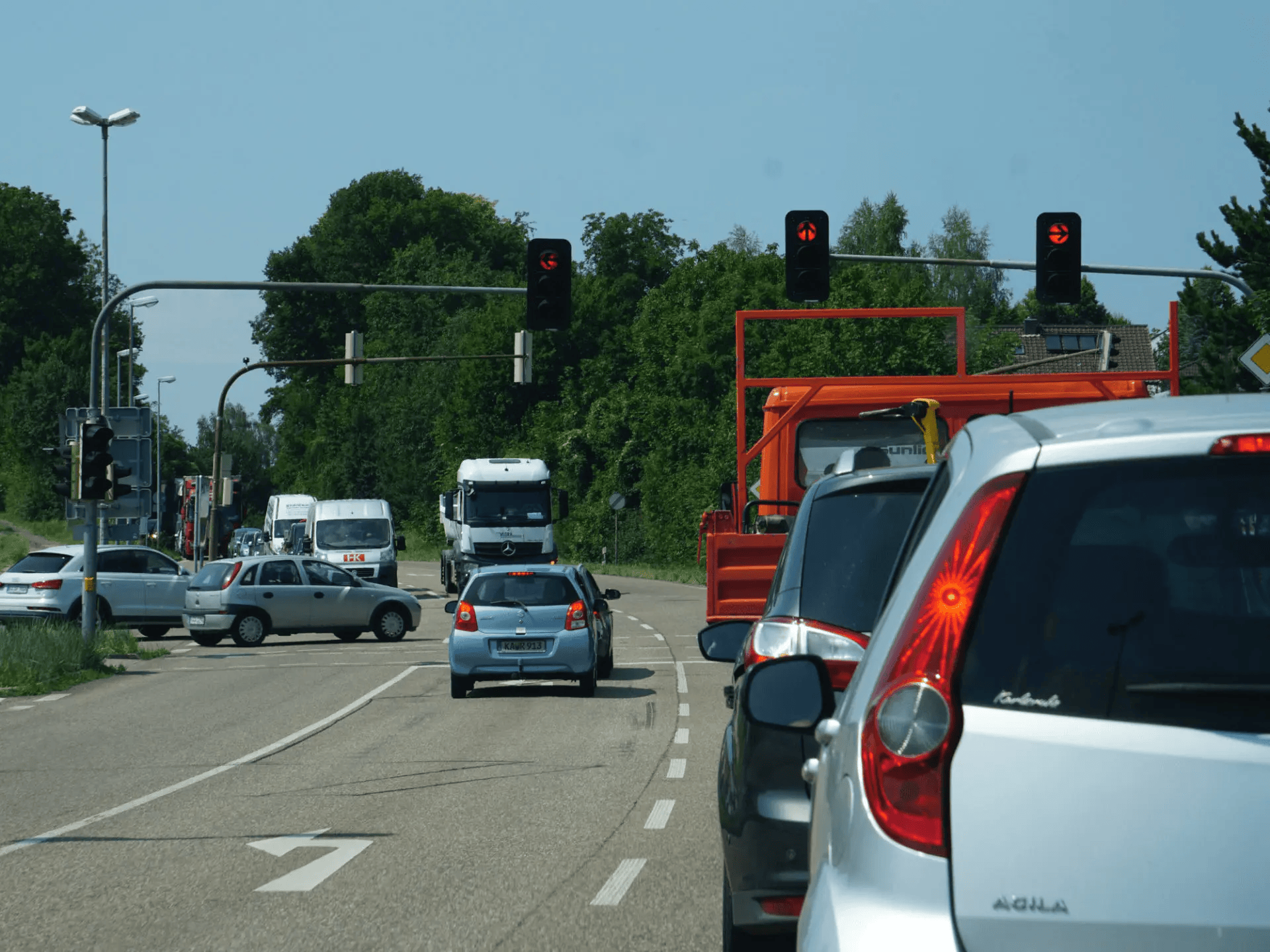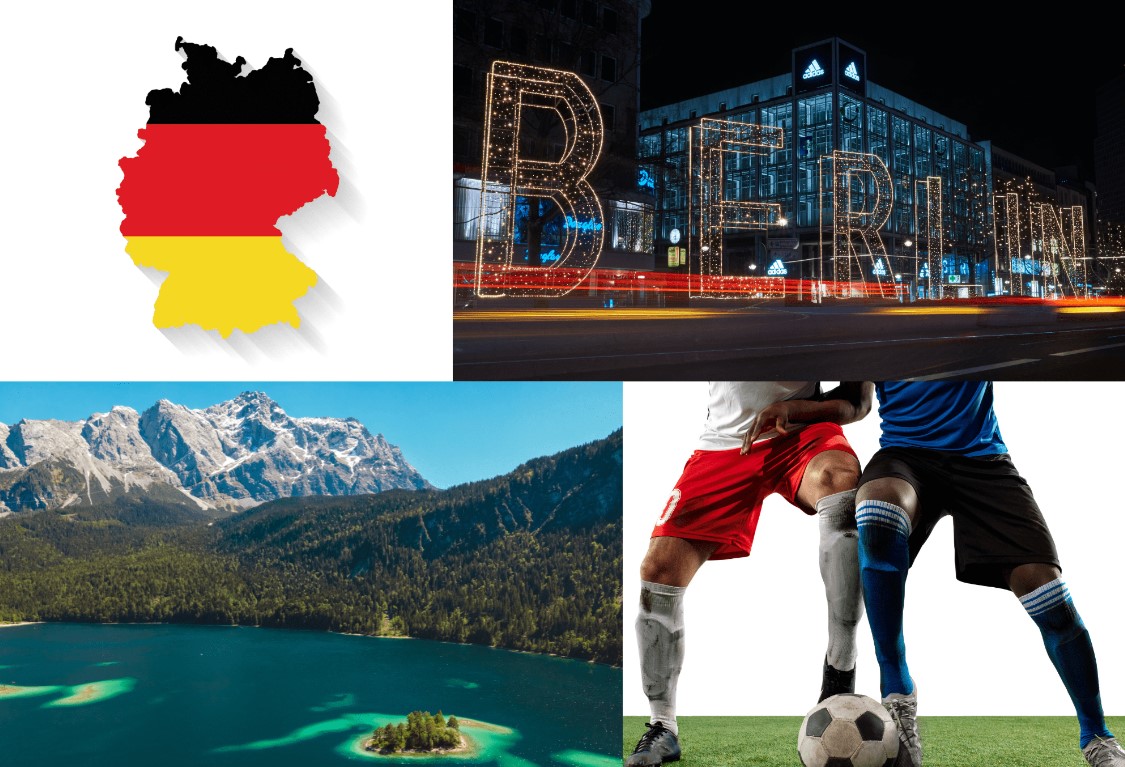Travel Planning auf Deutsch: Essential German Phrases for Your Next Trip
Imagine this: you're standing nervously at the help counter in the Klais Bahnhof in Klais, Germany. You are struggling to decipher the German signs and unsure of how to ask for directions to your hotel. Suddenly, you remember a key phrase from your German travel guide - "Entschuldigung, wo ist mein Hotel?" - and the agent gives you directions to the hotel Schloss Elmau.
Summer is just around the corner, and if you're like most Germans, you're probably already dreaming of your next vacation. With a minimum of 20 paid vacation days (and often more!), Germans know how to make the most of their time off. But before you can relax on the beach or explore a new city, you'll need to do some planning - and that's where knowing some key German travel vocabulary comes in handy.
In this guide, we'll walk you through the essential German words and phrases you'll need to plan your dream getaway. From general travel terms to specific vocabulary for booking accommodations and transportation, we've got you covered. And to make things even more practical, we'll show you how to use these words in context with a sample dialogue between two German travelers.
So pack your bags (Gepäck), grab your passport (Reisepass), and let's get started on your German travel planning adventure!
General Travel Vocabulary
Before we dive into the specifics of booking and itineraries, let's review some general German travel vocabulary that will come in handy throughout your planning process:
- Urlaub - Vacation
- Reisen - Travel
- Packen - To pack
- Reise - Trip
- Reisepass - Passport
- Koffer - Suitcase
- Reiseführer - Travel guide
- Reisebüro - Travel agency
- Reiseversicherung - Travel insurance
- Gepäck - Luggage
Now that you have a foundation of basic travel terms, let's move on to vocabulary for booking accommodations.
Booking Accommodations
One of the first steps in planning your trip is deciding where you'll stay. Here are some key German words and phrases related to booking accommodations:
- Die Reservierung - Reservation
- Buchen - To book
- Die Unterkunft - Accommodation
- Das Hotel - Hotel
- Das Gästehaus - Guesthouse
- Die Jugendherberge - Youth hostel
- Die Ferienwohnung - Vacation Home/Apartment
- Das Einzelzimmer - Single room
- Das Doppelzimmer - Double room
- Die Buchungsbestätigung - Booking confirmation
With these words in your vocabulary toolkit, you'll be able to confidently book the perfect accommodations for your trip. Now, let's talk about getting there!
Transportation
Whether you're flying, taking the train, or renting a car, you'll need to know how to navigate German transportation options. Here are some essential transportation-related words:
- Der Zug - Train
- Der Bahnhof - Train station
- Der Flughafen - Airport
- Der Flug - Flight
- Der Flugsteig - Gate
- Das Flugzeug - Airplane
- Der Mietwagen - Rental car
- Das Taxi - Taxi
- Die Straßenbahn - Tram
- Der Bus - Bus
Armed with this vocabulary, you'll be ready to book your transportation and make your way to your destination.
Attractions and Sightseeing
Now for the fun part - deciding what to see and do on your trip! Germany offers a wealth of attractions, from historical sites to natural wonders. Here are some words you might encounter while researching German sightseeing options:
- Touristenattraktionen - Tourist attractions
- Wahrzeichen - Landmarks
- Denkmäler - Monuments
- Museen - Museums
- Galerien - Galleries
- Historische Stätten - Historical sites
- Botanische Gärten - Botanical gardens
- Schlösser und Burgen - Castles and fortresses
- Naturschutzgebiete - Nature reserves
- Freizeitparks - Amusement parks
With these words in mind, you can start building your must-see list and plan your sightseeing itinerary.
Sample Dialogue
To see how you might use these travel planning words in context, let's take a look at a sample dialogue between two German friends, Claudia and Thomas, as they plan a trip.
Claudia: Hallo Thomas! Hast du schon Pläne für deinen nächsten Urlaub?
(Hello Thomas! Do you have plans for your next vacation?)
Thomas: Hi Claudia! Ja, ich plane gerade meine nächste Reise. Ich möchte irgendwohin reisen, wo ich mich entspannen und viele Sehenswürdigkeiten besuchen kann.
(Hi Claudia! Yes, I'm planning my next trip. I want to travel somewhere I can relax and visit lots of sights.)
Claudia: Das klingt toll! Wohin möchtest du reisen?
(That sounds great! Where do you want to travel?)
Thomas: Ich denke an Italien. Ich habe gehört, dass es dort viele schöne Touristenattraktionen gibt, wie Museen, historische Stätten und botanische Gärten.
(I'm thinking about Italy. I've heard there are many beautiful tourist attractions there, like museums, historical sites, and botanical gardens.)
Claudia: Das stimmt! Hast du schon deine Unterkunft gebucht?
(That's right! Have you already booked your accommodation?)
Thomas: Noch nicht. Ich überlege, ob ich ein Hotel, ein Gästehaus oder eine Ferienwohnung buchen soll. Was würdest du empfehlen?
(Not yet. I'm considering whether to book a hotel, guesthouse, or vacation rental. What would you recommend?)
Claudia: Wenn du es gemütlich und privat magst, würde ich eine Ferienwohnung empfehlen. Wenn du Leute treffen willst, wäre eine Jugendherberge oder ein Gästehaus vielleicht besser.
(If you like it cozy and private, I'd recommend a vacation rental. If you want to meet people, a youth hostel or guesthouse might be better.)
Thomas: Gute Idee. Ich werde im Reisebüro nachfragen, ob sie mir bei der Buchung helfen können. Hast du schon einmal eine Reiseversicherung abgeschlossen?
(Good idea. I'll ask at the travel agency if they can help me with the booking. Have you ever taken out travel insurance?)
Claudia: Ja, das ist sehr wichtig. Eine Reiseversicherung schützt dich im Falle von Notfällen oder, wenn du dein Gepäck verlierst.
(Yes, that's very important. Travel insurance protects you in case of emergencies or if you lose your luggage.)
Thomas: Das macht Sinn. Hast du Tipps, wie man am besten packt?
(That makes sense. Do you have any tips on how to pack best?)
Claudia: Klar! Vergiss nicht, deinen Reisepass einzupacken. Es ist auch gut, einen Koffer und einen kleineren Rucksack für Tagesausflüge mitzunehmen. Packe leichte Kleidung und bequeme Schuhe ein, besonders wenn du viel zu Fuß unterwegs sein wirst.
(Of course! Don't forget to pack your passport. It's also good to bring a suitcase and a smaller backpack for day trips. Pack light clothes and comfortable shoes, especially if you'll be doing a lot of walking.)
Thomas: Danke für die Tipps! Und wie komme ich am besten zum Flughafen?
(Thanks for the tips! And what's the best way to get to the airport?)
Claudia: Du könntest den Zug zum Bahnhof nehmen und dann mit dem Bus oder der Straßenbahn weiterfahren. Oder du buchst einfach ein Taxi oder einen Mietwagen.
(You could take the train to the train station and then continue with the bus or tram. Or you could just book a taxi or a rental car.)
Thomas: Das klingt gut. Was sind deine Lieblingsorte in Italien?
(That sounds good. What are your favorite places in Italy?)
Claudia: Ich liebe die historischen Stätten und Denkmäler in Rom, die Galerien und Museen in Florenz und die schönen Schlösser und Burgen in der Toskana. Vergiss nicht, auch ein paar Naturschutzgebiete zu besuchen!
(I love the historical sites and monuments in Rome, the galleries and museums in Florence, and the beautiful castles and fortresses in Tuscany. Don't forget to visit some nature reserves too!)
Thomas: Das hört sich fantastisch an. Ich werde eine Liste machen und alles gut planen. Danke für deine Hilfe, Claudia!
(That sounds fantastic. I'll make a list and plan everything well. Thanks for your help, Claudia!)
Claudia: Gern geschehen, Thomas! Ich wünsche dir eine wunderbare Reise und viel Spaß im Urlaub!
(You're welcome, Thomas! I wish you a wonderful trip and lots of fun on your vacation!)
Planning a trip can seem overwhelming, but with a solid grasp of German travel vocabulary, you'll be well-equipped to handle every stage of the process. From booking your Flug and Unterkunft to packing your Koffer and navigating Sehenswürdigkeiten, the words and phrases in this guide will help you plan your dream German Urlaub with confidence.
Remember, don't be afraid to put your new vocabulary into practice! Talking about your travel plans is a great way to start conversations and connect with German speakers. And who knows - you might even pick up some insider tips or recommendations along the way.
So go ahead and start dreaming up your ultimate German getaway. With your new travel planning vocabulary in tow, the possibilities are endless. Gute Reise!






